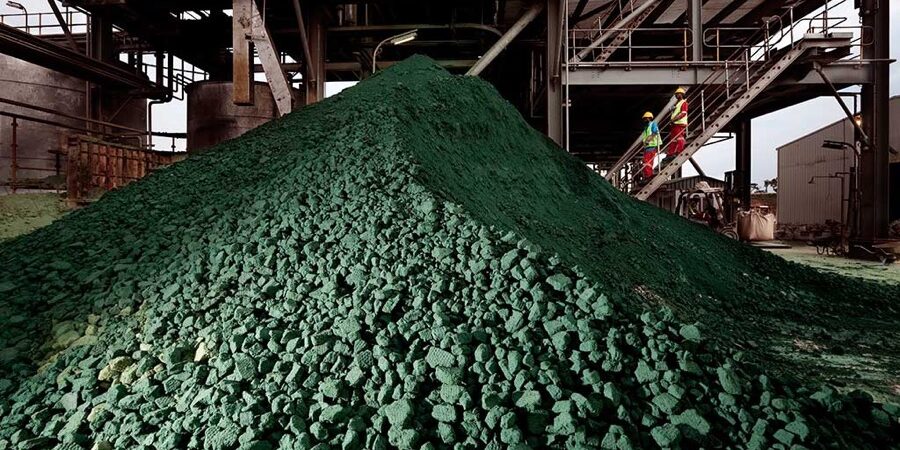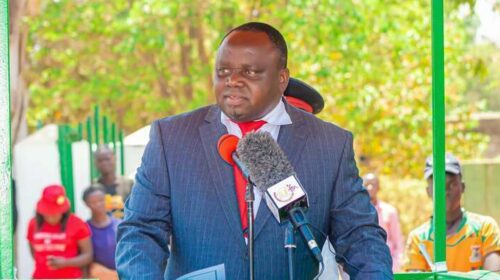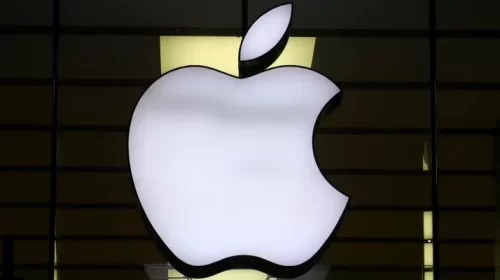The need for a fair resolution to the conflict between the shareholders of Tenke Fungurume (Cobalt litigation)
Resources Matters advocates for a fair and transparent outcome to the conflict that has pitted Congo against one of its largest investors, China Molybdenum, for more than six months, over financial compensation for Tenke Fungurume Mining’s copper-cobalt reserves.
Earlier last week, a Congolese court appointed an interim administrator to lead Tenke Fungurume Mining (TFM) for the next six months, according to The New York Times and court documents seen by Resource Matters. TFM is one of the largest mining projects in the Democratic Republic of Congo and the world’s second largest producer of cobalt, making it a strategic project for the rechargeable battery market and the global energy transition.
The ruling is the latest development in tense negotiations between project shareholders, including investor China Molybdenum and state-owned mining company Gécamines, over financial compensation for the project’s mineral reserves.
While it appears that this compensation is indeed due to the Congolese parties, the methods applied to obtain it are reminiscent of precedents that ended up serving political interests rather than the general Congolese public interest. Resource Matters calls on TFM shareholders to reach a fair and transparent resolution that keeps the interests of the Congolese people at heart.
Disputed reservations
Nearly a year ago, Gécamines discovered that operator China Molybdenum allegedly underestimated TFM’s mineral reserves to escape certain payment obligations. Gécamines is contractually entitled to a premium for the copper reserves it transfers to partnership companies like TFM. The concealment of the true size of the reserves has an impact on the Gécamines bonus. It also affects the Congolese Treasury, which is entitled to half of this bonus.
Moreover, the bonus rate that TFM pays for its reserves is low compared to its competitors. Over the past decade, almost all partnership companies have paid $35 per ton for copper reserves. By comparison, TFM paid $52 per ton for the first 2 million tons of copper, but only $12 for any tonnage discovered beyond that. This low rate contrasts even more sharply with the recently renegotiated rates ranging from $80 to $160 that some other major competitors operating in Congo have agreed to pay. Many of them also pay additional bonuses for reserves of cobalt, a by-product associated with copper previously excluded from the bonus formula, despite its strategic importance.
In other words, this renegotiation process has the potential to correct some questionable practices and standards at TFM. CMOC should immediately share all technical information on TFM’s current reserves and pay any due bonuses. Contractual imbalances must be corrected fairly.
Lessons from the past
However, the DRC’s negotiators must ensure that the current process remains fair and that the outcome is beneficial for the Congolese people.
First, a deterioration in the conflict could lead to the expropriation or suspension of TFM’s operations, which may cause more harm than good. The story of the Kolwezi tailings located about 100 km west of TFM is a telling example. Dissatisfied with the compensation for Gécamines in this project, the government canceled the contract in 2009. The project was sold to new investors in highly suspicious circumstances, three arbitration proceedings and a major anti-corruption investigation followed. , and the project lay dormant for more than five years. Hundreds of workers have lost their jobs, tax revenues have stagnated and the country’s reputation has been hit hard.
Second, the outcome of this process should benefit Gécamines’ operations and the country’s revenue, rather than its political elite. Here, the story of TFM itself is instructive. When China Molybdenum announced its intention to buy TFM from US company Freeport McMoRan in 2016, Gécamines blocked the sale.
After six months of arduous negotiations, Gécamines asked the same Lubumbashi court to appoint, again, an interim administrator to manage TFM. This ultimately led to a $100.2 million payment to Gécamines, just as former President Kabila negotiated an additional year in power beyond his constitutional term. The payment was instantly transferred to an opaque bank account called “Banque Centrale du Congo Spécial,” managed outside of Gécamines’ own procedures but also outside the public treasury. Within six weeks, 70% had been distributed to other accounts, including $12 million to companies affiliated with Dan Gertler, since
then sanctioned for corruption, nearly $10 million to Gécamines lawyers and $20 million in “tax advances” that the General Inspectorate of Finance cannot find in the accounts of the Public Treasury.
It is to be hoped that the new management at Gécamines will not succumb to such political pressures which have tainted the history of Gécamines and prevented it from becoming profitable. However, the current process seems to suggest the opposite. Negotiations are tightly controlled at the DRC presidency; the DRC government appears to be kept at bay and a ministerial proposal to appoint an independent expert by consensus to review the reservations – a typical resolution to this type of conflict – has been treated as an act of treason.
For all of these reasons, Resource Matters urges all parties to reach a fair and transparent agreement. We call on CMOC, the operator of TFM, to respect its contract, to disclose all technical information on its copper and cobalt reserves and to align its bonus rates with those applicable in the sector. We also call on the DRC Presidency and Gécamines to maintain the fairness of the process, to avoid jeopardizing scarce jobs and tax revenues, and to ensure full transparency of the results of this process. Otherwise, the judgment of the Lubumbashi court would ultimately be just one more maneuver for the benefit of a few politicians.
Analysis by Resource Matters.
![]()





